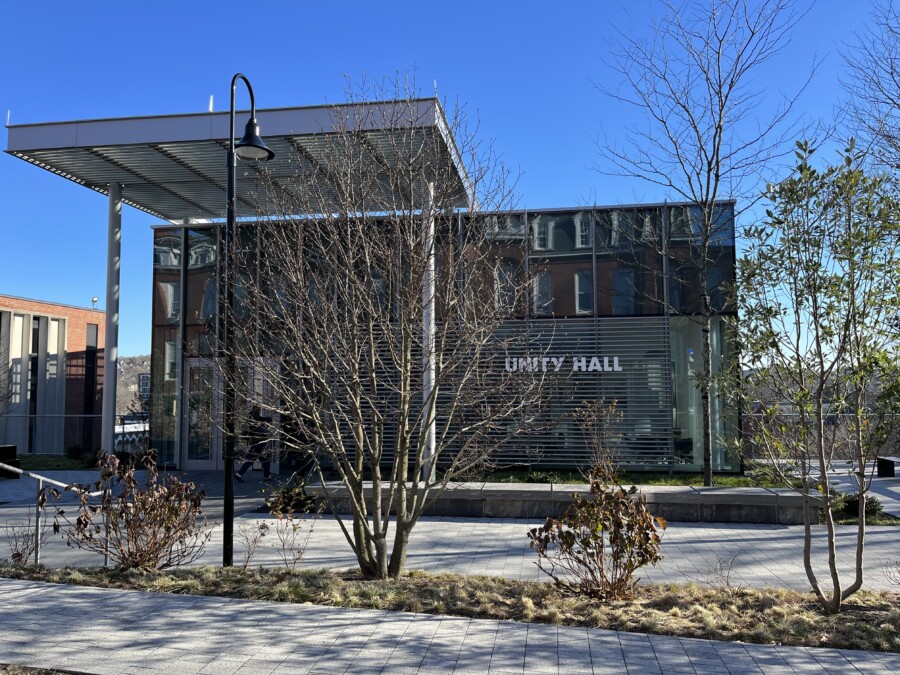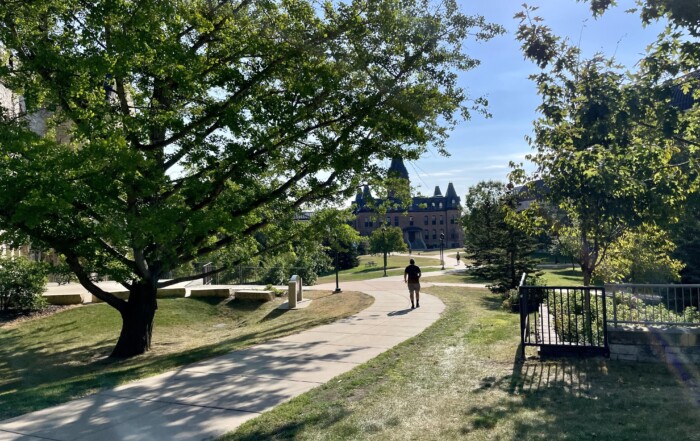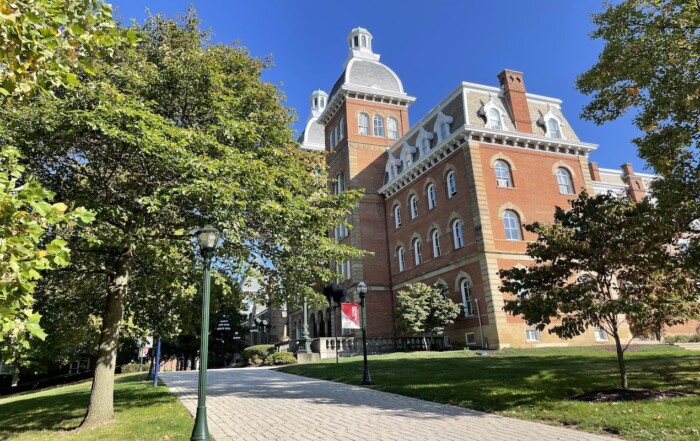College Admissions Tips and Guidance
College Spotlight: Worcester Polytechnic Institute

Explore Our Articles
Recent Posts
Popular Categories
Get In Touch
On Social
By Phone or Text
(617) 734-3700
By Mail or Email
1678 Beacon Street
Brookline, MA 02445
By Form
Educational Advocates
Our objective is to guide the family in finding options where the student will not only get admitted, but thrive and find success once on campus.
College Spotlight: Worcester Polytechnic Institute

“Unity Hall, one of the most significant buildings on the growing WPI campus, represents a historic commitment by this university to the future of purpose-driven STEM education and research and to meeting the needs of our students and the greater WPI community,” says WPI President Laurie Leshin.
“I am going to make a robot that delivers pizza to students,” said one ambitious Worcester Polytechnic Institute (WPI) student at the start of his seven-week project. Our tour guide, (a biology and biotechnology double major) was delighted to share this story as she ushered our group into the Innovation Studio building, featuring a makerspace for students to develop any project their minds can conjure up. The Innovation Studio, a 78,000-square-foot residential and classroom facility encapsulates WPI’s mission, providing a space where students combine theory and practice in a hands-on collaborative fashion. And, yes, that student did succeed in making his pizza delivery robot.
Located in urban Worcester, New England’s second-largest city WPI has roughly 4700 undergraduates. The compact 95-acre campus sits atop a hill, bordering two parks and the historic Highland Street District, giving it a suburban feel. As a member of the Higher Education Consortium of Central Massachusetts, students can take courses at any of the member institutions, including Clark University and College of the Holy Cross.
Having the first undergraduate robotics engineering program in the country, WPI offers over 50 degrees, the most popular of which are: engineering, life sciences, and business. Despite being a tech institute, the university embraces the arts and humanities, showing a surprising devotion to music and theatre with a strong drama theatre department. It also has a professional writing major, preparing students to translate technical jargon into accessible information for the public.

WPI’s campus is 95 acres and located on a hill in historic Worcester, MA.
At WPI, students are accepted into the university rather than into a degree program, allowing for a more flexible, project-based curriculum. Most students end up switching majors at least once, according to our tour guide. Instead of semesters, students have five seven-week terms, (5th being optional), taking three courses at a time. While this schedule takes some adjusting to, our tour guide optimistically offered, “If you don’t like a particular course, you are done in seven weeks and students are rewarded with a lengthy break after every second term.” The non-punitive grading system is also a plus; WPI only records A, B, C, or NR (no record), which does not show up on the student’s transcript. A student can accumulate three NRs during their time at WPI.
WPI is known for its hands-on, project-based curriculum. Students are required to engage in three project-driven courses, but most of them take advantage of all four. Freshmen can opt to take a Great Problem Seminar (GPS) during which students tackle real-world problems while learning professional development skills. Sophomores take on the Humanities and Arts (HUA) requirement that challenges them to take a step away from STEM and embrace some form of creative expression. During junior year, many students take advantage of going abroad to fulfill their Interactive Qualifying Project which encourages them to attack problems by intersecting science and society. This is a three-course equivalent project and built into the WPI Plan, ensuring students graduate within four years. WPI puts a great emphasis on global change, providing scholarships of up to $5000 to each student to complete a global project. The most prevalent focuses are on energy, the environment, and sustainable development. The WPI Plan culminates in a high-level research senior capstone project, known as the Major Qualifying Project (MQP), which can be either a term or year-long project. Just learning the acronyms offers a whole new challenge at WPI!
When asked what made our tour guide choose WPI, she responded that her decision was based on the collaborative and innovative community of the university. She cited the tragic Worcester fire of 1999 that claimed six local firefighters, which became the impetus for forming the Center for First Responder Technology. In the aftermath of the tragedy, the WPI community came together to develop a location system monitor to follow firefighters’ vital signs, making the work of first responders safer and more effective. The prototype of this device (now used nationwide) is located at the Smithsonian Library today. In continuation of such a legacy, current WPI researchers recently received over half a million dollars from the California Department of Forestry and Fire Protection to develop technology that predicts how fire spreads. This will allow for better-designed homes and landscaping that can withstand destructive forest fires.
WPI provides support for their incoming students in a three-structured system: each student gets assigned a residential advisor, a faculty or staff advisor, as well as an upper-class “community” advisor who assists with social adjustments. This support system is reflected in WPI’s 95% retention rate. Academic Resources Center (ARC) provides one-on-one peer tutoring as well as Math Science Help (MASH) and group review sessions for students. WPI boasts a strong career center, hosting two major career fairs each year with over 400 companies actively recruiting on campus.
WPI is a residential campus (with 15 residential halls), guaranteeing housing for all freshmen. Half of the students move off campus after their freshman year, which, according to our tour guide, is literally across the street. The majority of the students participate in internships with a smaller cohort completing a non-credit, paid work experience (CO-OP). In terms of athletics, there are about twenty D3 athletic teams on campus; the women’s rowing team won the NCAA Championship in 2022. There are plenty of clubs and organizations to participate in, including 12 fraternities and 6 sororities, and unique clubs like underwater hockey, and a cheese club.
When it comes to applying, WPI is a test-blind institution with no application fee. They do not recalculate GPA but place great value on quantitative courses (math, science, and computer science) completed in high school. They do track demonstrated interest; scheduling a visit to campus is highly encouraged. WPI is need-blind, and offers merit-aid, including WPI FIRST and VEX Robotics Scholarships.
Worcester Polytechnic University is for students who want to pursue STEM in an innovative, hands-on, collaborative environment with a humanistic approach.









